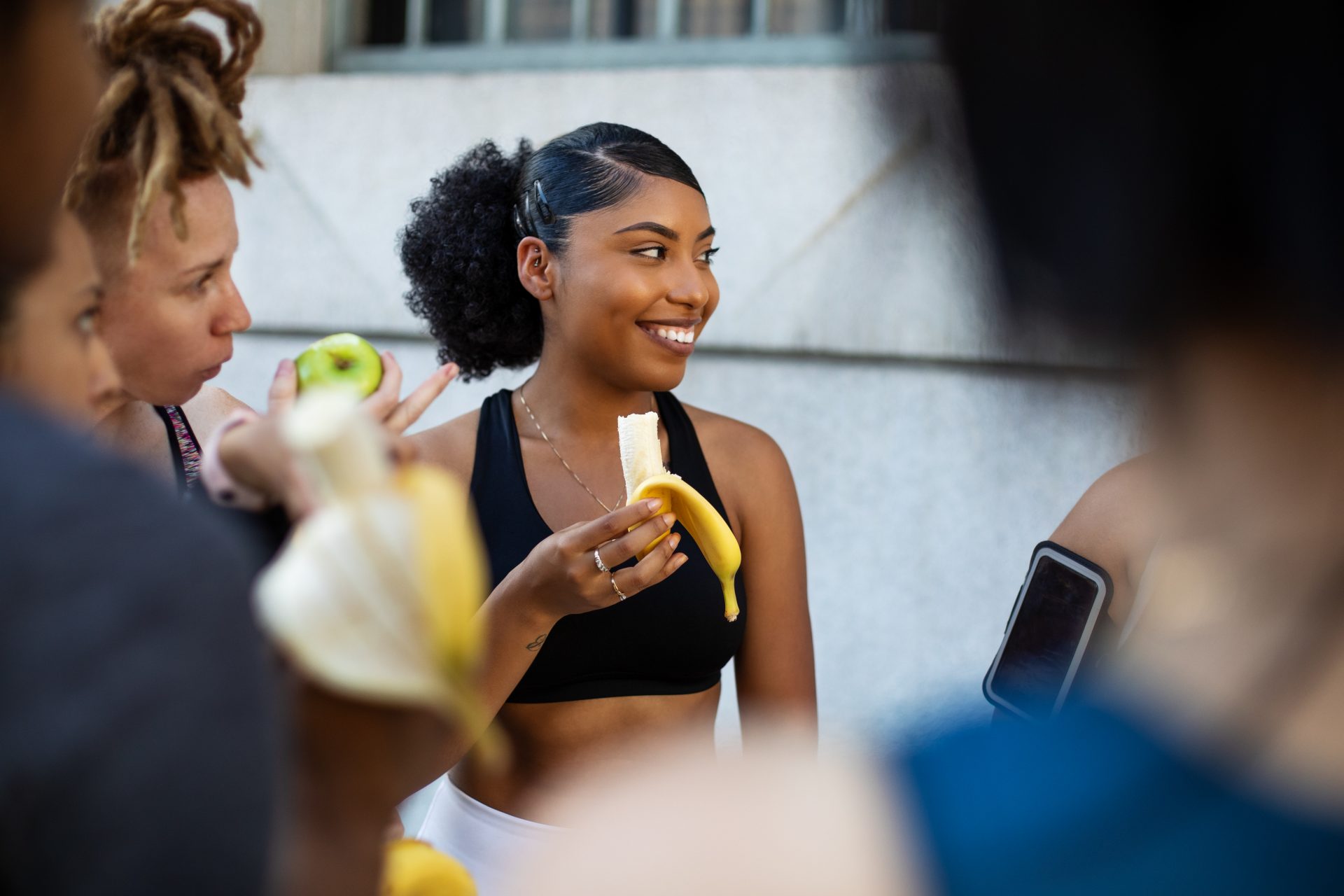
Is it normal to feel bloated after working out? An expert explains…
There are some side effects of exercise that you expect to experience. Sweat, check. Post-workout ‘hanger’? Been there. Sore muscles – what’s new? But you probably don’t expect to leave your workout feeling bloated and swollen.
Yet the reality is that many women do. And while we’re here for normalising the bloat, it’s important to understand why it happens, particularly if it means you can avoid the discomfort in the future.
Here to explain is Dr Folusha Oluwajan, GP specialising in sport and exercise and co-founder of MAHAAH clinic. “Bloating after exercise is quite common, and it’s not necessarily anything concerning,” she says.
You may also like
Feeling more bloated than usual? A gastroenterologist explains how the pandemic may have affected your gut health
Why do I feel bloated after exercise?
You were gulping water and air
“Often during intense or long workouts, you might be breathing heavily for long periods of time. If you end up swallowing a lot of air, it can lead to you feeling bloated or gassy. It’s the same with water, as we often end up gulping down large amounts of water during training, which can bloat us.”
Your pre-workout snacks
“Drinking pre-workout or sports drinks that contain artificial sweeteners can contribute to boating or discomfort in some people. Another cause could be what you eat before exercise, such as snacks that contain slowly digested food with lots of protein, fats or complex carbs. While these foods are good for your overall health, they’re trickier to break down and shouldn’t be eaten too close to exercise. As the body directs blood to the muscles, heart and lungs and away from your digestive tract during exercise, it slows the transit of these foods even more.”
You’ve worked up a sweat
“When you exercise and your body temperature rises, you’ll sweat more. That can lead to more fluid retention as your body tries to stay hydrated, but also means you might feel a bit swollen.”
You activated your stress response
“When you exercise you stimulate the sympathetic nervous system. This increases the production of stress hormones and shuts off digestion, which can lead to some bloating and swelling of the body.”

Wait… isn’t exercise meant to help bloating?
“In the long term, movement is going to help with bloating because it helps to physically move the digestive tract. That’s why gentle movement is recommended as part of treatment for things like constipation and IBS. If you’re feeling bloated, try light aerobic activity, such as walking, for around 20 to 30 minutes, a few times a week. The amount or intensity of training that might bring on bloating is completely different for every individual, their digestion, stress levels and what they eat and around their workout. Bloating is normal, so don’t let it put you off of doing any exercise.”
You may also like
IBS: “I finally managed my gut health – and it did not involve a restricted diet”
How to deal with post-exercise bloat
Opt for easily digested foods
“Don’t eat large amounts of food too close to working out. Try to leave it at least two hours between eating a meal and exercise, but if you need to eat closer to your workout then think about what you’re eating. Small amounts of simple carbohydrates are easily digested and also really good for providing the energy your body needs. Fruit, cereal bars, and yoghurt are all good choices.
“This is also important for post-workout food, as your body will still be in its stressed state. Focus on easy digestible, simple carbohydrates and proteins to replace energy and help with muscle repair and recovery. Protein powder is a great choice, but be mindful that some whey products can cause bloating if they contain a lot of lactose or casein.”
Regulate your breathing
“During exercise try not to drink gulp down lots of water and take small sips. Try to regulate your breathing so that you’re not taking really big breaths and gasping for air, but inhaling and exhaling properly.”
Stretch
“The best way to move from your sympathetic to parasympathetic nervous system (the rest and digest state) is to properly cool down and stretch. It will allow your heart rate and stress response to lower and should help reduce any bloating.”
Talk to your GP
“Bloating after exercise should only last for a maximum of a couple of hours. If you’re suffering from regular or severe bloating or you’ve noticed a change in your digestive tract such as different or painful bowel habits then it might be more than just exercise and you might need this to speak to your GP.”
Source: Read Full Article